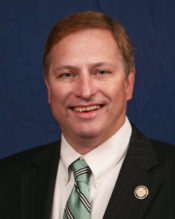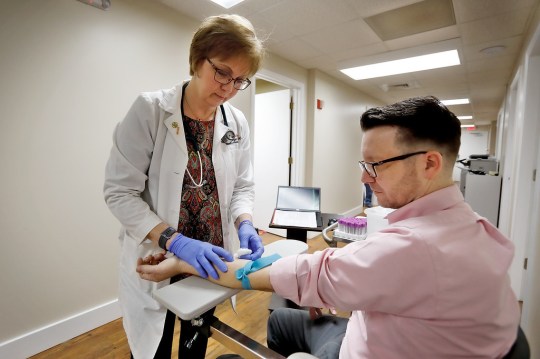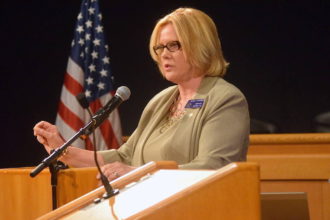A Georgia Senate study committee is recommending some changes in the state’s strict rules governing advanced practice nurses and physician assistants.
But the panel reached a split vote Tuesday on two issues: authority to prescribe narcotics and authority to order imaging tests. It’s a sign that, as in past years, getting such changes through the entire General Assembly may prove difficult.
The study committee’s work comes as Georgia faces major gaps in the number of medical providers serving rural areas of the state.

Bills seeking to broaden the ‘‘scope of practice’’ of mid-level medical providers (non-physicians with advanced training) are introduced annually at the Legislature, with proponents saying the changes would increase the public’s access to medical care. But these proposals typically meet tough resistance from medical provider groups seeking to defend the status quo.
Georgia is considered the most restrictive state in terms of allowing advanced practice registered nurses (APRNs) to practice to the fullest extent of their education and training, says Michelle Nelson, a Georgia State University nursing professor.
Nelson, president of the United Advanced Practice Registered Nurses of Georgia, points to medical imaging. APRNs in Georgia can order such tests only in an emergency situation, and ours is the only state with that restriction.
Sen. Renee Unterman (R-Buford), who is herself a nurse, pushed for eliminating the imaging rule at a panel hearing Tuesday. Currently, an advanced nurse “can’t order an MRI when it needs to be done,’’ she said.
And Sen. Chuck Hufstetler (R-Rome), who’s an anesthesiology assistant, said, “The bottom hasn’t fallen out’’ in the 49 states allowing APRNs to order non-emergency imaging tests.
But the vote for recommending the imaging change was 3-2 in favor, with two physicians on the panel, Sens. Ben Watson (R-Savannah) and Kay Kirkpatrick (R-Marietta), voting against. “I think advanced imaging requires advanced training,’’ Kirkpatrick said.
An argument about opioids
An advanced practice registered nurse (APRN) is a nurse who has obtained at least a master’s degree in nursing. APRNs have four categories: nurse practitioners; nurse anesthetists; nurse midwives: and clinical nurse specialists. Across the nation, 22 states allow APRNs to practice independently, without a physician’s supervision.
A physician assistant is a health care professional who has the training to perform many duties that doctors routinely handle. PAs must be licensed, and each must work under the direction of a physician.

The study committee also discussed another proposal — to allow PAs and APRNS to prescribe Schedule II drugs such as the opioids oxycodone and hydrocodone. (More than 40 states allow this prescribing authority.) That proposal also drew a split vote.
Citing the opioid crisis, Watson argued against the change. “We need less people prescribing narcotics and controlled substances,’’ he said.
Unterman suggested that PAs and advanced nurses in Georgia be allowed to prescribe an emergency supply of these drugs.

The five states that haven’t allowed this prescribing have some of the highest opioid abuse numbers, including West Virginia, which is considered to have the biggest such problem. In the states that have granted this authority, “it simply changes who writes the prescription,’’ Hufstetler told GHN after the meeting.
The committee did vote unanimously to recommend an increase in how many APRNs and PAs can be supervised by an individual physician — raising the maximum number from four to six. That would mirror a recent change in South Carolina’s practice rules.
“What we hope to do is get more mid-level providers in areas that don’t have physicians,’’ Hufstetler said.
The president of the Medical Association of Georgia, Dr. Andrew Reisman, said in a statement that the physicians organization “is still evaluating the committee’s recommendations, but MAG would oppose any legislation that allows APRNs or PAs to prescribe Schedule II drugs or allow APRNs to order radiographic imaging because MAG believes these measures would undermine patient safety.”

Nelson said Wednesday that she’s optimistic about the opportunity for change. “It’s time to move forward,” she said. “We’ll have a significant physician shortage in the next couple of years.’’
The proposed scope-of-practice changes, she said, “will increase access to care for the people of the state.’’
This article is part of an occasional series on rural health care in Georgia. These articles are supported by a grant from the Arthur M. Blank Family Foundation.

